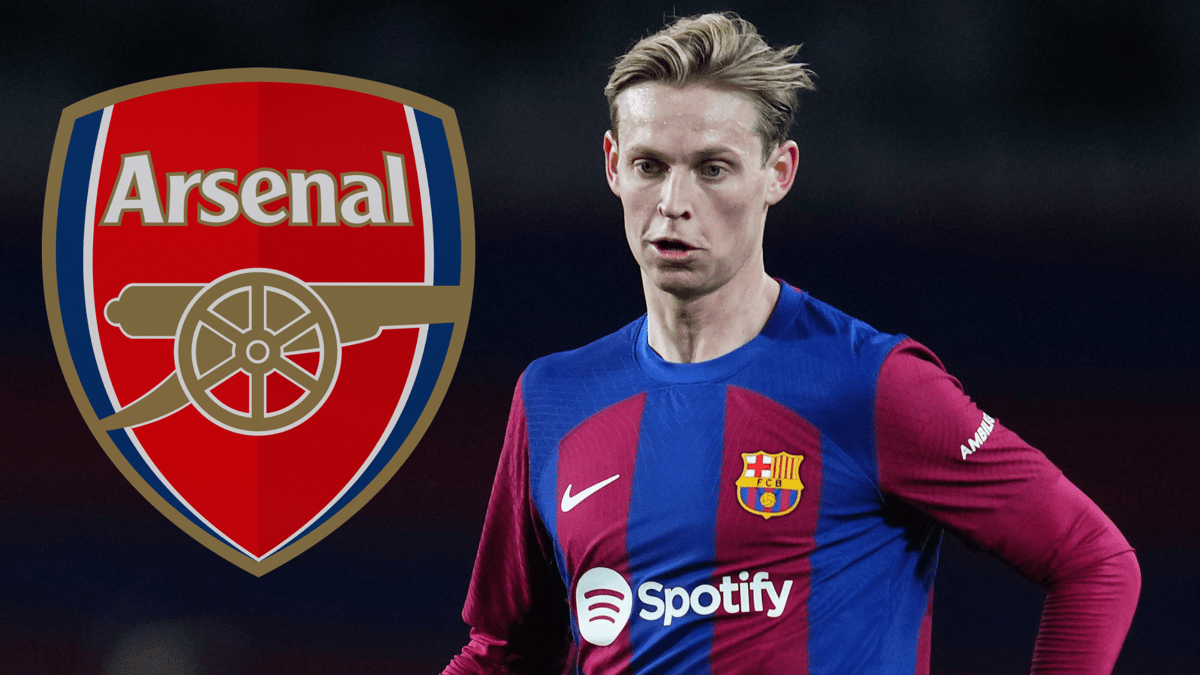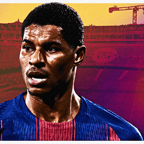-
Nieuws
- 4 hours ago
Why De Jong should join Arsenal - not Man Utd

Manchester United could revive their interest in Barcelona's Frenkie de Jong as part of their midfield reinforcement plans, according to reports in Spain.
The Dutchman international was a top target for head coach Erik ten Hag when he first took over the dugout at Old Trafford in 2021, but despite the Catalans and the Red Devils agreeing a deal, the move did not materialise. Ten Hag saw De Jong as the cornerstone of his blueprint, while both worked together at Ajax, winning an Eredivisie title and KNVB Cup.
Casemiro was eventually signed as an alternative to De Jong from Real Madrid and played a crucial role for the club last term, though with the Brazilian now 31 years old, it’s believed the club will look for younger talent. Casemiro is considered past his prime, and there are indications that Sir Jim Ratcliffe is eager to sell him this summer.
Revelo reports that Man Utd maintain a 'special interest' in De Jong and could pursue him in the upcoming months, when the Premier League giants are thought to have a better chance of securing the 26-year-old.
The outlet states that De Jong is 'unhappy' with his current situation at Barcelona, having deferred the payment of his salary in the first three years of his contract to assist with the club's financial challenges. Due to these financial issues, as well as the news of Xavi leaving, the midfielder could now depart. It;s Dutchman is allegedly frustrated with how his circumstances have been handled and is now more open to the idea of leaving. Naturally, plenty of Premier League clubs will now start to be linked to the playmaker.
Why De Jong should joijn
Playing Style: Arsenal is traditionally associated with a possession-based, attractive style of football, which aligns with De Jong's strengths as a technically gifted midfielder. If De Jong values a system that emphasizes ball control and intricate passing, Arsenal's style may be more appealing.
Managerial Philosophy: The tactical approach and managerial philosophy of the current Arsenal manager could be a decisive factor. If De Jong believes that the playing style and development opportunities under the Arsenal manager align with his own ambitions, it could be a strong incentive.
Immediate Starting Role: De Jong may prioritize a club where he is guaranteed a starting role and a central part in the team's plans. Arsenal might present a more favorable situation in terms of immediate playing time, especially if they have a specific role carved out for him.
Project and Ambition: De Jong could be enticed by the project and long-term vision that Arsenal is building. If he believes in the club's ambitions and sees a clear pathway to success, it might be a compelling reason to choose Arsenal over a potentially more competitive Manchester United.
Team Chemistry: If De Jong has positive relationships with current Arsenal players or the manager, it could play a role in his decision-making. A harmonious team environment and strong camaraderie could be significant factors in his choice.
Location and Lifestyle: Personal preferences, including factors such as location and lifestyle, could influence De Jong's decision. London, where Arsenal is based, may offer a lifestyle that appeals to him more than Manchester.
Club Culture: Arsenal has a rich history and a strong emphasis on nurturing young talent. If De Jong values a club with a deep-seated culture of developing and promoting youth, Arsenal might be a more attractive proposition.



















